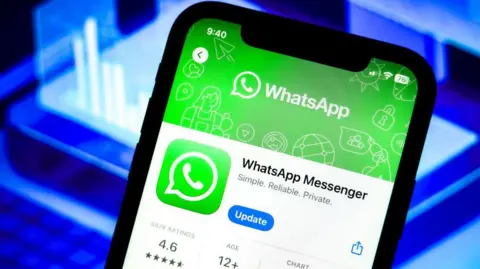In a significant development affecting privacy rights and user data protection, WhatsApp has stepped into the legal battle between Apple and the United Kingdom’s Home Office. This emerging conflict centers around user data privacy, encryption, and national security considerations. The messaging service, led by CEO Will Cathcart, has voiced its support for Apple, arguing that the case could set a dangerous precedent globally. Cathcart warns that allowing governments easier access to encrypted data could embolden other nations to pursue similar interventions, thus jeopardizing user privacy on a wider scale.
The legal saga began when Apple received a notification from the Home Office demanding access to the personal data of its global customers, citing national security concerns. The request, which critics argue undermines the privacy guarantees for millions of individuals, prompted Apple to seek judicial intervention. The Home Office has yet to comment directly on the ongoing proceedings but has emphasized that its foremost objective is citizen safety. They assert this goal aligns with their long-standing commitment to combat grievous crimes such as child exploitation and terrorism while balancing the need for privacy.
WhatsApp, which falls under the umbrella of Meta, has applied to submit evidence in support of Apple to the court hearing the latter’s appeal against the Home Office’s demands. Cathcart reiterated the commitment of WhatsApp to uphold user privacy, asserting that the company would challenge any legislation or government request that could potentially weaken the encryption securing its services. This proactive stance signifies a notable escalation in a complex and ongoing dispute between the UK and US governments regarding data privacy and surveillance practices.
This legal confrontation escalated notably back in February when reports surfaced indicating that the UK government sought direct access to information protected by Apple’s Advanced Data Protection (ADP) system. An immediate backlash followed, leading Apple to halt the deployment of its ADP feature in the UK and ultimately take legal action against the Home Office. The tensions surrounding this matter have sparked outrage among U.S. lawmakers, with some describing it as a grave threat to U.S. cybersecurity interests that could tarnish the existing intelligence-sharing arrangements with the UK if not rescinded. High-profile political figures, including Tulsi Gabbard, director of U.S. National Intelligence, have condemned the UK government’s stance as a significant infringement on the privacy rights of U.S. citizens.
As the crux of the debate revolves around the balance between privacy rights and national security measures, Apple’s ADP utilizes robust end-to-end encryption (E2EE) for securing files such as photos and notes stored on iCloud, positioning the user as the sole possessor of the requisite access key. This encryption model, which WhatsApp similarly employs, protects users from unauthorized access but simultaneously poses challenges for law enforcement agencies trying to investigate criminal activities. While legal authorities may rely on court warrants for access to less-protected data, the inherent nature of E2EE prevents tech firms from offering any mechanism for data retrieval, further complicating the intersecting landscapes of privacy rights and law enforcement needs.
WhatsApp has openly stated its adherence to maintaining E2EE, noting a preference for service paralysis over compromising encryption security. Apple made a similar declaration upon retracting its ADP in the UK, emphasizing the avoidance of creating vulnerabilities that could be exploited by malicious actors. Notably, the current legal request from the Home Office arises under the Investigatory Powers Act—legislation frequently shrouded in confidentiality, with its provisions often kept secret from the public. In recent court submissions, governmental attorneys posited that certain deliberations should remain undisclosed on national security grounds. However, judicial authorities, in response to appeals from multiple news outlets, ruled that specifics regarding the case should be made publicly available to ensure transparency.
In summary, the growing confrontation between tech giants and government entities underscores the inherent conflict between safeguarding individual privacy and addressing pressing national security concerns. As WhatsApp lines up alongside Apple in this high-stakes legal showdown, the ramifications of this case could potentially redefine the governance of user privacy, encryption standards, and the legal reach of governmental powers in a digital era where individuals increasingly rely on these technologies for personal communication and security.



